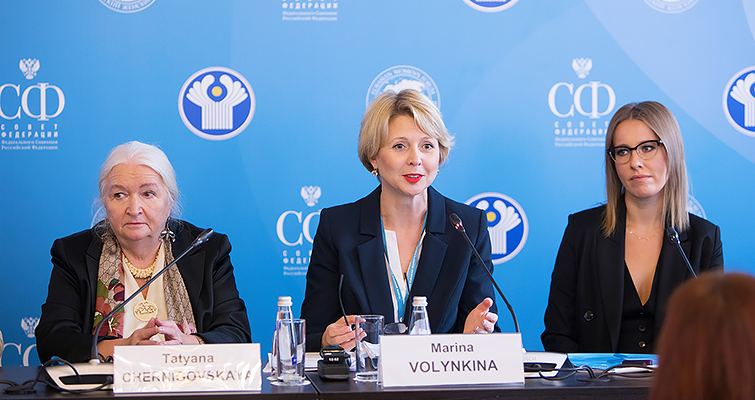
RECTOR HELD DISCUSSION ABOUT MASS MEDIA
Marina Volynkina, our rector, moderated an open discussion about the role of mass media in forming a modern shape of women's leadership. It took place at the second Eurasian Women's Forum.
People from different spheres discussed an issue of balance in positive and negative content in mass media. Marina Volynkina says that the platform became one of the most popular ones. It proves the currency of the theme.
BRAIN IS NOT SIEVE
Tatyana Chernigovskaya, an expert in neuroscience and psycholinguistics and a professor, spoke about a brain's reaction to negative information:
'A brain isn't a sieve. It saves all the information. Alas, we can't control it. So let's try not to fill it with other negative things.'
She says that it's important to learn how to turn off the negative source. However, we cannot stop it completely. That is why we need to create a hospitable 'media ecology'. Journalists should be the main power for it to happen.
'JOURNALIST SHOULD FEEL RESPONSIBILITY'
Marina Volynkina says that every journalist should feel social responsibility for his or her articles:
'Mass media should tell people about negative events but don't force one’s opinion upon anyone at the same time. One can often find an author's opinion in the given text. Do we have the right to transfer our emotions to our readers knowing that this information influences their mood?'
However, objectiveness cannot guarantee full 'media ecology'.
The participants of the discussion agreed that modern journalists tend to dwell on negative events. In the meanwhile, there is much positive news to talk about. One needs to master journalistic skills to attract readers to optimistic content. Those who are interested in motivating journalism can make it sound interesting (for example, by storytelling or info graphic). The most popular now is video content.
GLOBAL MARATHON OF SUCCESS STORIES
After the discussion, its participants were determined to create and share positive content.
'Our platform included politics, scientists, journalists, bloggers, and everyone had one's own opinion about the theme. In the end all participants were interested in continuing global marathons of women's success stories', said Marina Volynkina.
International participants became interested in the project and wanted to share the information about it in their homelands.
Marina Volynkina expressed her wish for journalists to create articles with positive content.
Kristina Danilina,
Students’ business ‘Agency for Relevant Communication’ incubator
Translated by Irina Nikishina
28.09.2018Ïðîñìîòðîâ:

Marina
Volynkina






